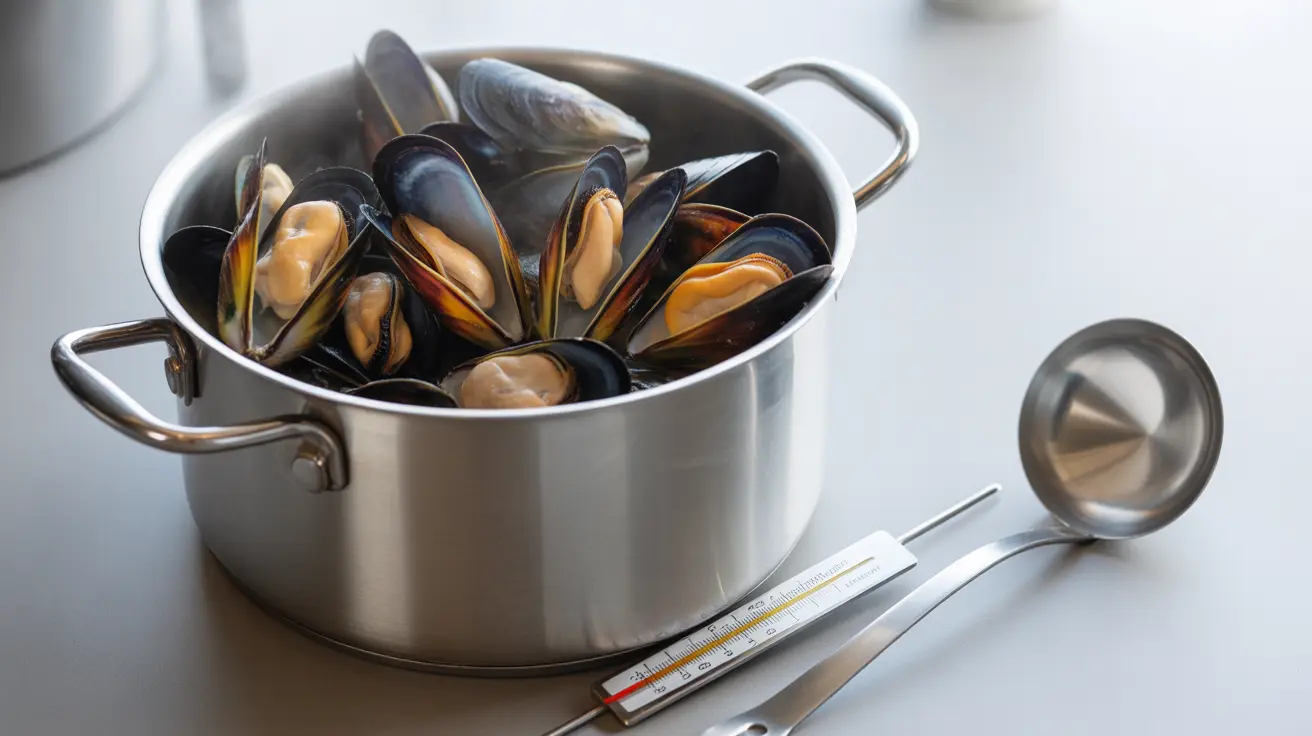Pregnancy brings many questions about food safety, and seafood choices like mussels often cause particular concern. Understanding how to safely incorporate mussels into your pregnancy diet can help you benefit from their rich nutritional profile while avoiding potential risks.
This comprehensive guide will explain everything you need to know about consuming mussels during pregnancy, including proper preparation methods, health benefits, and essential safety precautions.
Safe Consumption Guidelines for Mussels During Pregnancy
When properly prepared, mussels can be a safe and nutritious addition to your pregnancy diet. The key is ensuring they are thoroughly cooked to eliminate harmful bacteria and parasites that could pose risks to you and your developing baby.
Mussels should be cooked until their shells open completely and the meat inside is firm and fully opaque. The internal temperature should reach at least 145°F (63°C) to ensure safety.
Recommended Cooking Methods
Several cooking methods can ensure your mussels are safe to eat:
- Steaming (most common and recommended method)
- Boiling
- Baking
- Adding to thoroughly cooked soups or stews
Nutritional Benefits for Expecting Mothers
Mussels offer exceptional nutritional value during pregnancy, providing several essential nutrients:
- High-quality protein for fetal development
- Iron for preventing anemia
- Omega-3 fatty acids for brain development
- Vitamin B12 for nervous system development
- Zinc for immune system support
- Selenium for thyroid function
Safety Concerns and Risks
While cooked mussels are generally safe, there are important risks to be aware of:
Raw or Undercooked Mussels
Never consume raw or undercooked mussels during pregnancy, as they may contain harmful bacteria, viruses, or parasites that can cause serious illness, including:
- Vibrio infections
- Hepatitis A
- Norovirus
- Harmful algal toxins
Recommended Weekly Intake
The FDA recommends limiting seafood intake during pregnancy to 8-12 ounces per week of well-cooked, low-mercury seafood. Mussels fall into this category, making them a safe choice when consumed within these guidelines.
Purchasing and Preparation Guidelines
Follow these essential steps when buying and preparing mussels:
- Purchase from reputable suppliers
- Choose fresh mussels with tightly closed shells
- Discard any broken or open shells that don't close when tapped
- Store properly in the refrigerator
- Clean thoroughly before cooking
- Cook immediately after purchase when possible
Frequently Asked Questions
Can I safely eat mussels during pregnancy, and how should they be cooked?
Yes, you can safely eat mussels during pregnancy when they are thoroughly cooked until the shells open completely and the meat is firm and opaque. Steam, boil, or bake them until they reach an internal temperature of 145°F (63°C).
What are the benefits of eating mussels while pregnant?
Mussels provide essential nutrients for pregnancy, including high-quality protein, iron, omega-3 fatty acids, vitamin B12, zinc, and selenium. These nutrients support fetal development, brain health, and the mother's immune system.
Why should raw or undercooked mussels be avoided during pregnancy?
Raw or undercooked mussels may contain harmful bacteria, viruses, and parasites that can cause serious foodborne illness. These pathogens pose increased risks during pregnancy and could potentially harm both mother and baby.
How much mussels or shellfish is safe to eat per week when pregnant?
Pregnant women can safely consume 8-12 ounces of well-cooked, low-mercury seafood per week, including mussels. This amount provides beneficial nutrients while staying within safe consumption limits.
What precautions should I take when buying and preparing mussels during pregnancy?
Buy fresh mussels from reliable sources, ensure shells are closed and unbroken, clean them thoroughly, and cook immediately after purchase. Store properly in the refrigerator if not cooking right away, and always cook until completely done.




